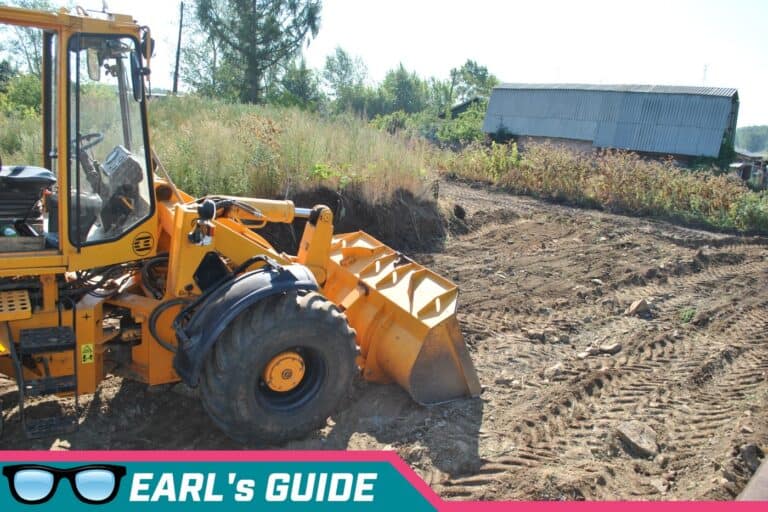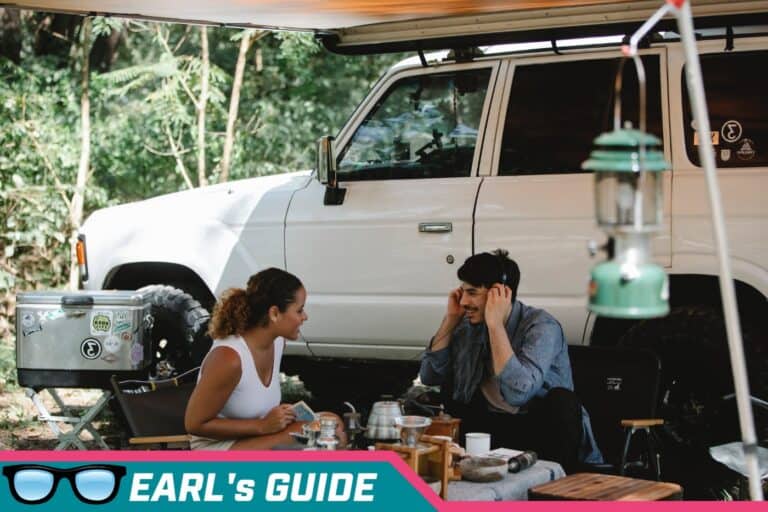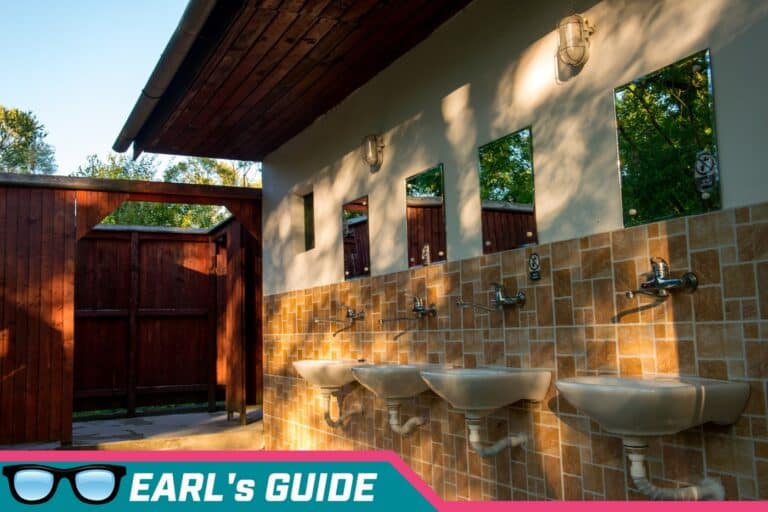Welcome to the latest edition of Earl’s Guide, where we dive deep into the heart of outdoor hospitality and uncover the secrets to success in the campground industry. I’m Robert Earl, and today, I’m thrilled to bring you a comprehensive review of Episode 3 of the “Campground Catalyst” podcast, a pivotal discussion that navigates the crossroads every aspiring campground owner faces: the decision between buying an existing campground and building one from scratch.
This episode serves as a beacon for those at the threshold of their campground ownership journey, shedding light on the complexities, challenges, and rewards each path holds. Whether you’re drawn to the allure of crafting a unique destination from the ground up or you’re considering the immediate cash flow and established customer base that comes with purchasing an existing campground, this discussion provides invaluable insights.
Join me as I unpack the episode’s key takeaways, share personal anecdotes, and offer guidance gleaned from years of experience in the trenches of campground ownership. Our journey through Episode 3 of the “Campground Catalyst” podcast promises to equip you with the knowledge and perspective needed to make an informed decision in your venture into outdoor hospitality. Let’s embark on this exploration together, and discover the route that best aligns with your vision, resources, and aspirations in the captivating world of campgrounds.
Buying an Existing Campground
The decision to enter the campground business by purchasing an existing property is a path teeming with potential and pitfalls. As a co-host of the “Campground Catalyst” podcast, I’ve navigated these waters and gleaned insights that are invaluable for anyone considering this venture. In this section, I’ll share my perspective on buying an existing campground, exploring the nuances of this complex process and offering advice to prospective buyers.
Understanding the Appeal
The allure of buying an existing campground lies in its immediate operational status. Unlike starting from scratch, an existing campground comes with infrastructure, a customer base, and, perhaps most importantly, a history of cash flow. This appeal is not just about the physical assets but the intangible value of established relationships within the community and the market presence that can take years to build from the ground up.
Due Diligence: The Cornerstone of Purchase
The cornerstone of a successful purchase lies in comprehensive due diligence. This process goes beyond examining financial records and extends to understanding the campground’s reputation, its compliance with regulations, and the condition of its infrastructure. Environmental inspections, zoning compliance, and an assessment of the electrical, water, and sewage systems are critical to uncovering any hidden liabilities that could impact the profitability and operational efficiency of the campground.
The Financials: Reading Between the Lines
Analyzing the campground’s financials offers a window into its operational health, but it’s essential to read between the lines. Look for patterns of revenue growth or decline, understand the major expense categories, and assess the campground’s pricing strategy. It’s also crucial to consider the potential for revenue diversification and growth. Can additional services or amenities be introduced? Is there room for expansion? The answers to these questions can significantly influence the valuation and the investment’s attractiveness.
Operational Assessment: The Heartbeat of the Campground
Understanding the operational dynamics of the campground is paramount. This involves evaluating the staff’s expertise and morale, the efficiency of the booking and management systems, and the quality of customer service. The operational assessment should also include a review of the campground’s marketing strategies and its online presence, as these are critical components in attracting and retaining guests in today’s digital age.
The Community and Market Context
A campground does not operate in isolation. Its success is deeply intertwined with the local community and the broader market. Engaging with local authorities, businesses, and residents can provide insights into the campground’s standing in the community and any potential challenges or opportunities that lie ahead. Additionally, understanding market trends, competitor offerings, and guest expectations can help identify areas for improvement and innovation.
Transition Planning: Ensuring a Smooth Handover
A successful purchase is not just about closing the deal but also ensuring a smooth transition. This involves detailed planning for taking over operations, from staff integration to system updates. Establishing a good rapport with the seller can facilitate the transfer of knowledge and practices that are essential for maintaining continuity. It’s also an opportunity to reevaluate vendor contracts and negotiate terms that align with the new ownership’s goals.
Investing in the Future
Buying an existing campground is not merely a transaction; it’s an investment in the future. Prospective owners must be prepared to invest not just financially but also in terms of time, effort, and creativity. Whether it’s upgrading facilities, enhancing guest experiences, or implementing sustainable practices, the path to success involves a commitment to continuous improvement and innovation.
Purchasing an existing campground offers a unique opportunity to enter the outdoor hospitality industry with a running start. However, the journey requires meticulous planning, thorough due diligence, and a strategic vision for the future. By understanding the financial, operational, and community aspects of the campground, prospective owners can navigate the complexities of the purchase process and set the stage for long-term success. As we discuss in the “Campground Catalyst” podcast, the goal is not just to buy a campground but to create a destination that guests will return to year after year. Through careful consideration and proactive management, buying an existing campground can be a rewarding venture that contributes to the vibrant tapestry of outdoor hospitality.
Building an RV Campground from the ground up
Building a campground from the ground up is an endeavor that marries passion for the great outdoors with the intricate dance of entrepreneurship and real estate development. It’s a journey that promises the allure of crafting a unique guest experience, tailoring amenities to perfection, and ultimately, creating a destination that resonates with the essence of adventure and relaxation. As we delve into the intricacies of building a campground, it’s crucial to navigate this process with a blend of creativity, strategic planning, and a keen understanding of the market’s needs.
Vision and Conceptualization
The first step in building a campground is crystallizing your vision. This initial phase is about dreaming big but also grounding your ideas in feasibility. Consider what makes your campground stand out: Is it an eco-friendly retreat? A haven for RV enthusiasts? Or perhaps a family-centric getaway with a myriad of activities? Your vision should reflect a clear understanding of your target market and the unique value proposition you’re offering. This stage is about conceptualizing not just a campground, but a memorable experience for your guests.
Market Research and Feasibility Study
With a vision in hand, the next step is to conduct thorough market research and a feasibility study. This involves analyzing the local and broader camping market, understanding the preferences and behaviors of your target demographic, and studying competitors. Key questions to address include: What types of campgrounds are most in demand? What amenities are must-haves for your target guests? And, crucially, what price points are viable for the market? A comprehensive feasibility study will also evaluate the potential costs, revenues, and profitability of the campground, providing a roadmap for your investment.
Location Selection and Zoning
The adage “location, location, location” holds especially true in the campground industry. The ideal site is accessible yet feels secluded, offering guests a sense of escape. Proximity to attractions, natural beauty, and activities can significantly enhance your campground’s appeal. However, finding the perfect location also involves navigating zoning laws and land-use regulations. This step may require engaging with local authorities and the community to ensure that the land can be legally and practically developed into a campground. Understanding and adhering to zoning requirements is critical to avoid costly setbacks down the line.
Design and Development Planning
Designing a campground is an intricate process that balances aesthetic appeal with functional efficiency. This phase involves laying out campsites, roads, facilities, and amenities in harmony with the natural landscape. Environmental considerations are paramount, as sustainable practices not only appeal to guests but are often a regulatory requirement. Engaging with architects, engineers, and landscape designers who specialize in outdoor and recreational spaces can ensure that your campground is both beautiful and compliant with environmental standards.
Infrastructure and Amenities
Developing the infrastructure for a campground is a significant undertaking. Essential utilities such as water, electricity, sewage, and internet connectivity must be planned and implemented with precision. Additionally, the choice of amenities can set your campground apart. Whether it’s a state-of-the-art bathhouse, an outdoor cinema, a swimming pool, or specialized facilities like bike rentals or climbing walls, amenities play a crucial role in defining the guest experience. This stage requires careful budgeting and project management to ensure that development stays on track and within financial projections.
Licensing, Permits, and Compliance
Securing the necessary licenses and permits is a critical and often complex aspect of building a campground. This process varies significantly by location and can involve multiple levels of government. It’s essential to understand the specific requirements for your region, including health and safety regulations, environmental protections, and operational permits. Navigating this regulatory landscape can be challenging, but adherence to legal and compliance standards is non-negotiable for the legitimacy and long-term success of your campground.
Marketing and Branding
As construction progresses, developing a strong marketing and branding strategy is crucial to generate buzz and attract your first guests. This involves creating a compelling brand identity that reflects the ethos and experience of your campground. A robust online presence, including a user-friendly website and active social media channels, is essential in today’s digital age. Marketing efforts should highlight what makes your campground unique, showcasing amenities, activities, and the natural beauty of your location.
Opening and Operational Strategy
The final stretch before opening involves finalizing operational details, from staffing and training to reservation systems and guest services. Creating a smooth operational flow ensures that guests have a positive experience from the moment they book to the end of their stay. It’s also a time to establish partnerships with local businesses and attractions, enhancing your offerings and integrating your campground into the broader community.
Continuous Improvement and Growth
The journey doesn’t end with the grand opening. Successful campground ownership requires ongoing evaluation, guest feedback analysis, and a willingness to adapt and improve. Whether it’s upgrading amenities, adding new activities, or enhancing sustainability practices, a commitment to continuous improvement will keep guests returning and help your campground thrive in a competitive market.
Pros and Cons of Buying vs. Building a Campground
When venturing into the world of campground ownership, one of the first decisions you’ll face is whether to buy an existing campground or build one from scratch. Each option has its distinct advantages and challenges, and the best choice depends on your resources, goals, and vision for the campground. Below, we explore the pros and cons of buying versus building a campground, followed by a table summarizing the key points.
Buying an Existing Campground
Pros:
- Immediate Cash Flow: Buying an existing campground means acquiring a business that already generates revenue. This can provide immediate financial returns and a solid foundation upon which to build and improve.
- Established Customer Base: An existing campground comes with a customer base, reducing the time and effort needed to attract initial guests.
- Known Entity: With an existing campground, you have the advantage of reviewing historical data, including financials, customer reviews, and operational records, to make informed decisions.
- Potentially Lower Initial Investment: Depending on the condition and location of the campground, buying an existing property can be less expensive than building from scratch, especially when considering the costs of land acquisition, zoning, and infrastructure development.
Cons:
- Deferred Maintenance: Existing campgrounds may come with maintenance issues or outdated facilities that require significant investment to update and improve.
- Limited Customization: You are somewhat constrained by the existing layout, infrastructure, and facilities. Major changes may be costly or impractical.
- Legacy Issues: There could be pre-existing issues with zoning, licenses, or community relations that you’ll need to address.
Building a New Campground
Pros:
- Customization: Building a new campground allows you to design and customize the layout, amenities, and overall guest experience from the ground up.
- Modern Facilities: You have the opportunity to incorporate modern technologies and environmentally sustainable practices into your design, potentially attracting a broader audience.
- No Legacy Issues: Starting fresh means you avoid inheriting any past operational or legal issues.
Cons:
- Higher Initial Investment and Risk: Developing a new campground requires significant upfront investment in land acquisition, infrastructure, zoning, and construction. The financial risk is also higher without guaranteed immediate revenue.
- Longer Time to Market: The process of building a campground from scratch can be lengthy, delaying the time until you can start generating income.
- Regulatory Challenges: Securing the necessary permits and zoning approvals for a new campground can be a complex and time-consuming process.
Summary Table: Buying vs. Building a Campground
| Criteria | Buying an Existing Campground | Building a New Campground |
|---|---|---|
| Initial Investment | Potentially lower, depending on the property’s condition. | Higher due to land, infrastructure, and construction costs. |
| Time to Revenue | Immediate cash flow from existing business. | Longer time to market and revenue generation. |
| Customization | Limited by existing layout and facilities. | Full control over design and amenities. |
| Facilities | May require updates and renovations. | Opportunity for modern, sustainable facilities. |
| Customer Base | Established customer base. | Requires effort to attract initial guests. |
| Historical Data | Access to financials and operational records. | No historical data; projections only. |
| Maintenance & Repairs | Potential for deferred maintenance issues. | New facilities with lower immediate maintenance needs. |
| Regulatory Challenges | Legacy zoning and permit issues may exist. | Navigating zoning and permits from scratch. |
Choosing between buying and building a campground is a significant decision that requires careful consideration of your financial resources, business goals, and personal preferences. Whether you opt for the instant gratification and challenges of an existing campground or the blank canvas and potential of building a new one, success lies in thorough planning, due diligence, and a commitment to creating an exceptional guest experience.
Buying vs. Building – A guide
In wrapping up our exploration of the pivotal decision between purchasing an existing campground or embarking on the journey to build one from the ground up, it’s clear that each path offers its own unique set of challenges and rewards. The insights provided in Episode 3 of the “Campground Catalyst” podcast illuminate the nuanced considerations that prospective campground owners must weigh. Whether it’s the immediate operational start-up and established customer base of an existing campground that appeals to you, or the allure of designing a new site that perfectly aligns with your vision, success hinges on passion, dedication, and strategic foresight.
Embarking on the campground ownership journey, whether through purchase or construction, is a significant commitment that requires thorough planning and a deep understanding of the industry. Here, we provide a series of frequently asked questions and a list of considerations to guide you as you make this pivotal decision in the realm of outdoor hospitality.
Frequently Asked Questions (FAQ)
- Which is more cost-effective, buying an existing campground or building a new one?
- Initially, purchasing an existing campground may seem more cost-effective due to existing infrastructure. However, building a new campground offers the advantage of customizing facilities and potentially saving on long-term operational costs through modern efficiencies.
- What is the typical timeline for building a new campground?
- Building a new campground can vary greatly in time, from one to three years, depending on factors such as location, regulatory approvals, and the scope of the project.
- What are the main challenges when buying an existing campground?
- Key challenges include addressing any deferred maintenance, overcoming any existing operational or regulatory issues, and modernizing facilities to meet current guest expectations.
- Are there financing options available for both buying and building campgrounds?
- Yes, financing is available for both options, though terms and accessibility might vary based on the business plan, creditworthiness, and project feasibility.
- How can I differentiate my campground in a competitive market?
- Focus on creating unique guest experiences, investing in quality amenities, and leveraging effective marketing strategies. Understanding your target market and staying attuned to industry trends are crucial for differentiation.
List to Consider
As you consider the journey toward campground ownership, keep in mind these key points:
- Market Research: Conduct in-depth research to understand guest preferences and identify market opportunities.
- Location: Select a location that not only appeals to your target demographic but also complies with zoning and regulatory requirements.
- Financial Planning: Develop a comprehensive business plan with detailed financial projections, considering all potential expenses and revenue streams.
- Regulatory Compliance: Ensure familiarity with all relevant zoning laws, environmental regulations, and permit requirements.
- Design and Amenities: Plan your campground layout and amenities to enhance the guest experience, keeping sustainability and modern trends in mind.
- Operational Strategy: Prepare for the operational demands of running a campground, including staffing, marketing, and daily management practices.
- Continuous Improvement: Commit to ongoing enhancements based on guest feedback and industry evolution to keep your campground competitive and appealing.
Navigating the decision to buy or build a campground is a complex process that benefits from careful consideration and industry expertise. Whether you opt for the tradition of an existing site or the innovation of a new build, your success will be built on a foundation of strategic planning and a commitment to delivering exceptional guest experiences in the great outdoors.

Robert Earl
Robert EarlRobert has 20+ years of experience as a Real Estate Agent, Coach & Digital Marketer. Robert Earl is passionate about teaching and empowering others to pursue their dreams and create sustainable income. Whether through a career in real estate, affiliate marketing, niche blogging, or transforming campgrounds into thriving communities, his proven strategies and techniques have helped numerous individuals and businesses succeed. Based on his years of experience and knowledge in the online marketing industry, along with his hands-on management in the Real Estate & RV Park sector, he has crafted a unique and effective approach to personal and professional growth. In addition to his business pursuits, Robert is also a CrossFit Online Level 1 Trainer (CF-OL1) and enjoys fitness activities, including Rucking workouts while traveling the country. His multifaceted career showcases his dedication to growth, innovation, and the pursuit of excellence in various domains.






